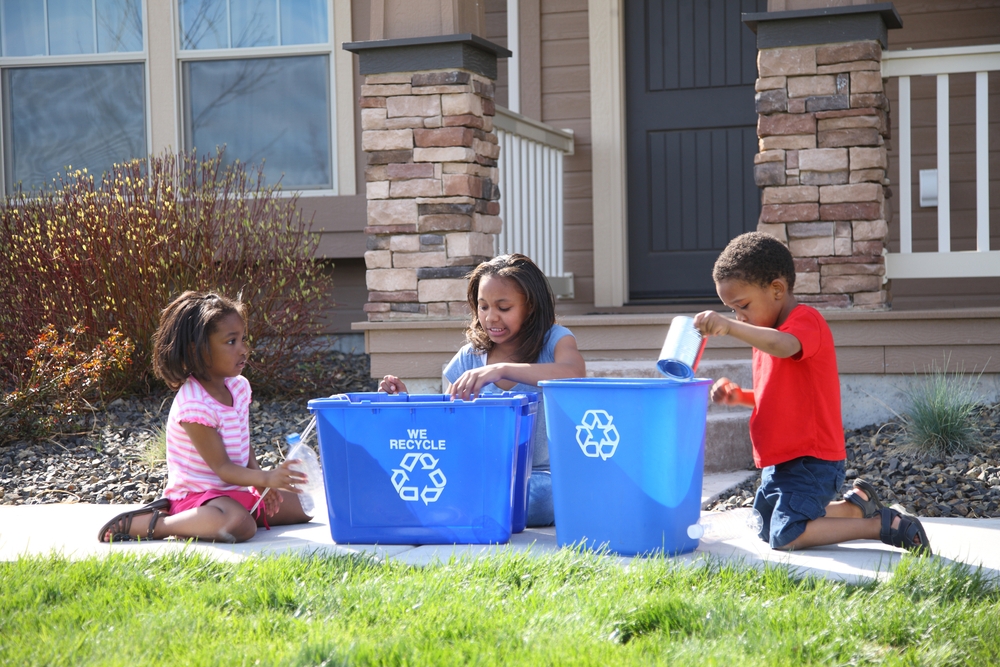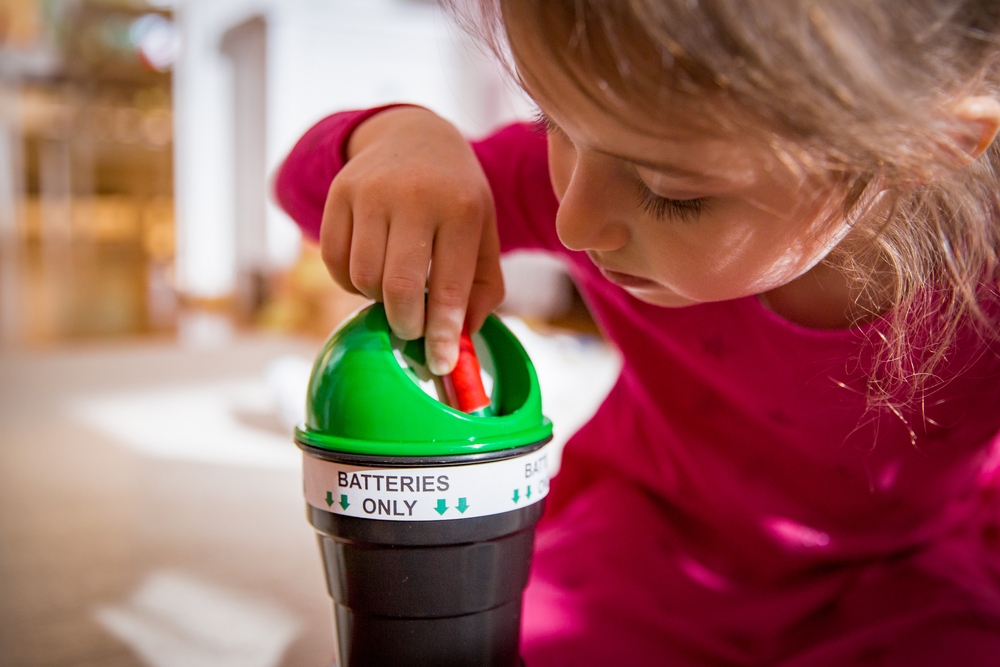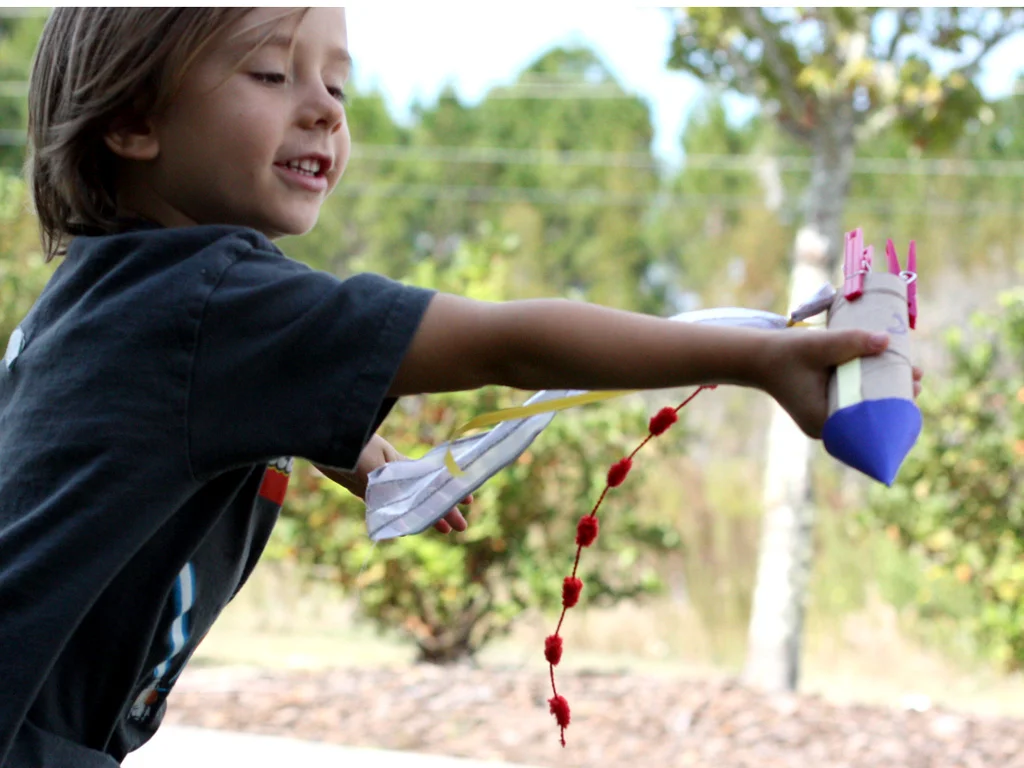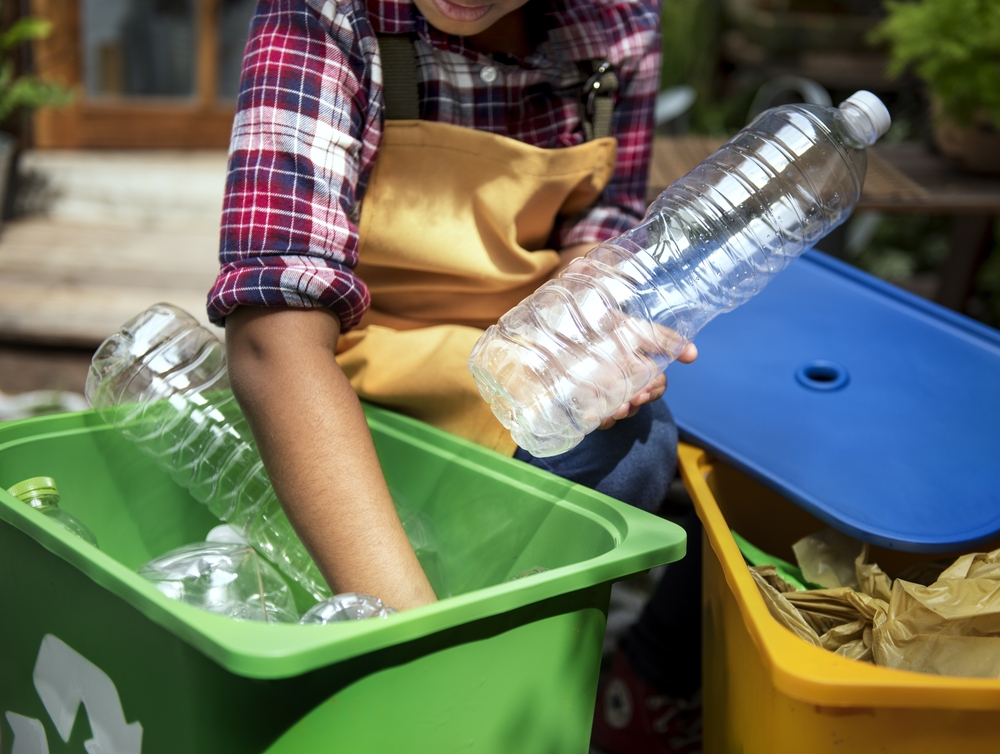Recycling Tip: Roles for Reducing Waste & Recycling
Life is messy – especially when the entire family is spending this much time at home. Reducing waste requires a lot of collaboration. By designating different roles for family members, you can help divide up responsibilities and keep each other in check!
Grocery Store Scavenger
When it’s safe to grocery shop, challenge your family’s Scavenger to find food with packaging made from recyclable or compostable materials. Glass, metal, and paper are preferred over plastic. If plastic packaging is the only option, have your child look for the recycling symbol and number. Items labeled 1 and 2 can be recycled at almost every recycling center, but items labeled 3, 6, and 7 usually can’t be recycled. Black plastic can’t be recycled, so stay away from that altogether. The household Grocery Store Scavenger can team up with the Recycling Resource to learn more about recycling symbols and their meanings!
Recycling Resource
Another recycling tip: there are a lot of rules when it comes to recycling, and they vary depending on where you live. You can find out information about your local recycling program with a little research. Assign this role to an older child who can look up your city’s recycling rules and enforce them in your household! To get your kids excited about recycling, have them check out National Geographic’s game called Recycle Roundup or the EPA’s Recycle City. Both resources teach kids about sorting waste and keeping communities sustainable.
Energy Vampire Slayer
Some devices still steal your power (and run up your energy bill) even when they’re turned off! Energy vampires come in all shapes and sizes but can be slayed in one swift motion – unplugging. Your household Vampire Slayer will be responsible for unplugging all unused electronics that use standby power. These include, but aren’t limited to, televisions, game consoles, microwaves, printers, phone chargers, computer cords, and coffee makers.
Switch Master
A simple flip of a switch can save you a lot of energy. The Switch Master will make sure all the lights are turned off in empty rooms and before you leave the house.
Water Warrior
We all leave the water running while washing dishes or brushing teeth occasionally, but doing this just one time leads to a lot of water waste. Letting your faucet run for five minutes can waste 10 gallons of water and uses enough energy to power a 60-watt light bulb for 18 hours according to the EPA. The household Water Warrior will be in charge of reminding the rest of the family to turn off the tap! You can make a fun activity out of it, and have your child create signs to post near the sinks around your house.
Recycling Tip: Systems for Success
You can also reduce waste at home with simple systems that encourage green habits throughout your house.
Selective Sorting

With help from the household Recycling Resource, set up a system that works for your family and your city’s recycling rules.
- If your city requires households to sort recyclables and other waste, designate a bin for each one and have your kids create labels for them. If you’re limited in space, put small bins in multiple rooms where your family spends a lot of time and have your kids empty the bins at the end of each day.
- Try not to use plastic trash bags in your recycling bins because they’re not always recyclable. If you do, just dump out your recycling and reuse the trash bag. Paper bags are a great alternative!
- Make sure to wash out food packaging before recycling.
- If your city supports composting, buy a small compost bin for your kitchen! Food scraps that can be composted include all vegetable and fruit wastes, cooked or uncooked grains, tea bags, coffee grounds, eggshells and old bakery products. Meat, fish, dairy products and oils should not be composted.
Battery, Bulb & E-Waste Bins

Old electronics, batteries, and lightbulbs are considered hazardous waste and need to be recycled at a special facility. Create separate (plastic) bins for these materials and store them in a cool place. Every six months, look up a local hazardous or e-waste recycling drop off center and take a field trip! Staples, Best Buy, Lowes and The Home Depot provide e-waste and/or battery collection services.
Upcycle Used & Unwanted Items

Show your kids how to turn trash into a treasure with fun DIYs and activities! Create a space to store toilet paper rolls, egg cartons, tissue boxes, plastic bottles, glass jars, and metal food cans. Check out our list of toilet paper roll crafts & activities for kids.
First In First Out (FIFO)
To prevent food waste, many grocery stores and restaurants follow a “first in first out” system, and you can do the same thing at home! Have your kids check the expiration labels of all the food in your fridge — then have them organize foods so that the newer foods are in the back and older foods are in the front. This way your family will likely eat the food with the closest expiration date first, which will reduce the chances of food being forgotten or going bad in the back of your fridge. Keep the FIFO system going the next time you go shopping and assign your household’s Grocery Store Scavenger to do the fridge organizing. If your family has a habit of throwing away a lot of food, you can also start a compost system in your kitchen.
